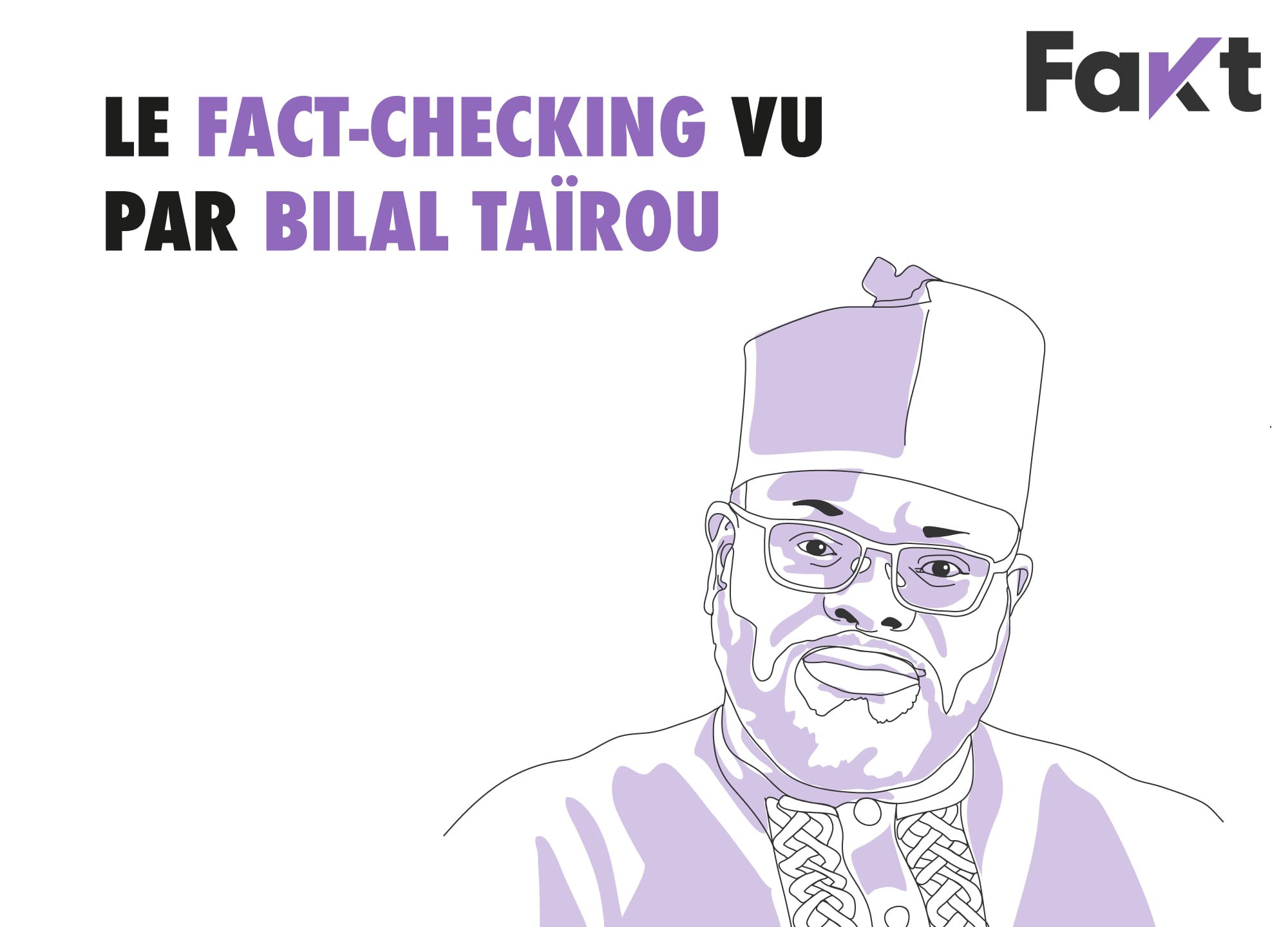At a time when false information proliferate at a dazzling speed on social networks, especially in French-speaking Africa, the actors of the Fact-Checking are redoubling their efforts to restore the truth. Bilal Taïrou, Beninese journalist and chief coordinator of the African Fact-Checking Alliance (AFCA), shares with Fakt Afrique his look at the evolution of Fact-Checking in Africa, the challenges imposed by artificial intelligence, and the levers to be activated to anchor this practice in our societies.
How do you look at the evolution of fact-checking in Africa in recent years, especially in French-speaking countries?
Fact-checking has evolved a lot, often thanks to significant events, whether happy or unhappy. One of the major trigger elements of the development of Fact-Checking in French-speaking Africa was the Pandemic of COVVI-19. Many initiatives have emerged during this period and have been trying to stay as best they can since. Progress has been made, organizations have settled and professionalized.
However, it still lacks expertise, especially to adapt to the evolution of disinformation. One of the major challenges today is the disinformation generated by artificial intelligence. Organizations often lack skills to counter this type of content. In addition, many structures have difficulty perpetuating, especially when they only work in the context of punctual projects.
How to reconcile journalistic rigor requirements with the speed necessary to counter real -time disinformation?
In no case should we sacrifice journalistic rigor for the benefit of the speed or the search for buzz to counter disinformation. Creating false information often takes little time, while demystify can be very long. But one cannot publish a denial without having gathered solid evidence.
It is a binding reality to which you have to adapt. That said, you shouldn't delay too long before reacting too long. This is why, today, thanks to the support of certain donors, organizations are trying to produce checks faster. There are also tools to accelerate processes. Everything is a question of adaptation to reduce the gap between the moment when a disinformation is released online and the moment when it is refuted.
Can artificial intelligence really help African fact-check or is likely to accentuate certain inequalities?
Regarding artificial intelligence, I think there is sometimes a little fantasy around. I exchanged with editors to whom I asked what percentage of denied disinformation came from artificial intelligence. The answers show that this is not (yet) the majority of cases. Yes, generative AI represents an important issue, but we must learn to navigate this environment. AI can also be a precious help for verifying the facts. It is up to us, Africans, to take advantage of its potential to create tools adapted to our contexts. For example, tools capable of detecting disinformation early, identifying certain keywords specific to our realities. This is a way to use AI to speed up the fact-checking.
4. What concrete levers should we activate to anchor the cultivation of verification in our African societies lastingly?
When we talk about anchoring a culture of verification of facts, you have to ask yourself if you are aimed at the media or information consumers.
In my opinion, you have to adopt an ambivalent approach: the two are important.
On the media side, we must continue capacity building, advocacy, and educate editors and managers through training workshops.
It is crucial to abandon sensationalism and the search for buzz, which sometimes lead to shortcuts in the editorial process.
This lack of rigor leads to the publication of erroneous information.
It is therefore necessary to strengthen editorial processes to restore journalistic standards and ethics.
Writing must also be encouraged to set up internal fact verification cells.
Today, Fact-Checking is essential to clean up the media environment and the entire informational ecosystem. It is therefore crucial to encourage writing to set up, within them, cells dedicated to the verification of the facts. By activating these levers, we will promote the lasting anchoring of the culture of fact-checking in practices and minds.
From the point of view of consumers, the emphasis must be placed on media education. If it is carried out rigorously and adapted, it will effectively brake the spread of false information.
End word:
in fine words, I would say that authentic information is a fundamental need. It must be true, verified. We all have a role to play in this quest for truth. Let us avoid relaying false information and we are committed, each at our level, in the fight against disinformation. This is how we can restore the confidence that citizens once granted to the media.
Article written by Abdoussala Dicko




